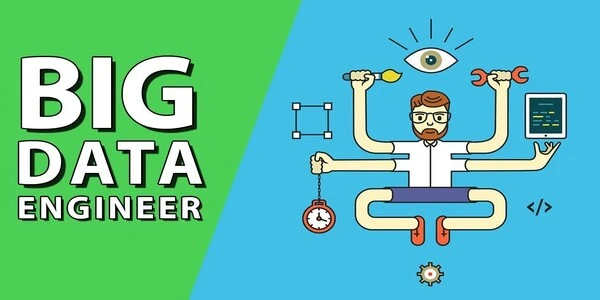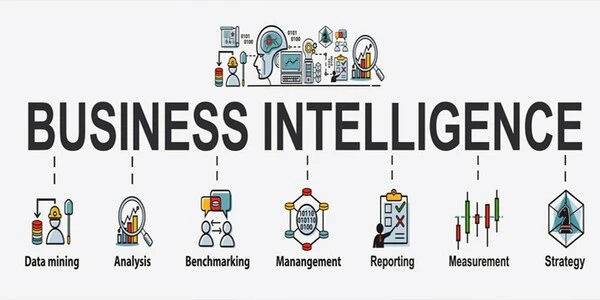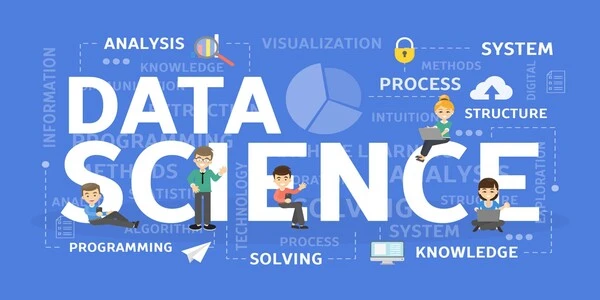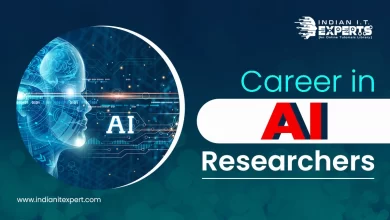Career in Artificial Intelligence after 12th

Did you recently complete your 12th and want to make a career in Artificial Intelligence? AI’s rising demand across industries has led to a surge in career opportunities. While many find a career in AI lucrative, understanding the field and specific roles is crucial before diving in. Employers seek skilled professionals, and the need for AI talent is driving career growth in this domain. Careers in AI are booming due to high demand across industries.
With its vast applications, numerous promising job opportunities exist, making it a lucrative and attractive field for career advancement. However, to explore these opportunities, understanding what AI is and the required technical skills is crucial. This will equip job seekers to identify the right career path and secure the best AI jobs. So, in today’s blog, we will dive deep into the different careers in Artificial Intelligence after the 12th. So, without wasting further time. Let’s get started!!
Also read: 10 ऐसी jobs future के लिए जिसका AI कुछ नही बिगाड़ सकती
Table of Contents
10 Best Careers in Artificial Intelligence after 12th
1. Big Data Engineer

Big data engineers design systems for efficient data interaction, manage vast organizational data, and extract valuable insights. They earn competitive salaries and work with cutting-edge tools like Spark and Hadoop. This role is ideal for those passionate about new technology and seeking diverse learning opportunities, including machine learning skills. Python, R, Java, SQL, and Apache Spark are crucial programming languages, while data migration, visualization, and mining expertise are valuable assets. PhDs in computer science or mathematics are often preferred, highlighting the potential for career success in AI as a big data engineer.
2. Business Intelligence Developer

A Business Intelligence Developer (BI Developer) uses AI to analyze complex data, providing insights for business growth. They develop and maintain solutions to improve profitability and efficiency, leveraging their expertise in cloud-based data and programming. This in-demand career requires strong problem-solving and analytical skills, with a suitable background in computers, mathematics, or engineering. Salaries are competitive, offering opportunities for career advancement.
3. Data Scientist

Data scientists act as business detectives, gathering and analyzing information from various sources to solve problems and predict future trends. This in-demand field requires strong analytical and communication skills, coupled with expertise in programming languages and machine learning. A master’s degree in math or computer science, along with experience, is often preferred. With lucrative salaries and high demand, a career in data science offers rewarding opportunities for those with the right qualifications.
4. Machine learning Engineer

Machine learning, a branch of AI, uses data to build self-learning software. Engineers build and maintain these systems, working with vast amounts of data in areas like image recognition and fraud prevention. Strong math, programming, and data management skills are crucial for success. A master’s degree, Python knowledge, and experience with specific algorithms are beneficial. This in-demand field offers high salaries and career prospects.
5. Research Scientist

Research scientists leverage their expertise in applied math, statistics, and machine learning to conduct extensive research on applications of AI. They typically hold PhDs or advanced master’s degrees and possess strong knowledge in NLP, reinforcement learning, and related fields. With the growing importance of AI, research scientists are highly sought-after and well-compensated, with an average salary of Rs. 7.8 LPA.
Also read: The Impact of Artificial Intelligence (AI) on the future work
6. AI Data analyst

An AI data analyst prepares data for analysis by cleaning and discarding irrelevant information. They then use statistical methods to draw insights from the data. This role typically requires a bachelor’s degree in math or computer science, with knowledge of regression and proficiency in using Excel. While the demand is stable, the future of the role is unclear, and the salary is lower compared to other AI positions. Despite the salary, AI data analysts play a crucial role in various industries.
7. Product Manager

AI product managers use strategic data collection to solve business problems. They identify key issues, gather relevant datasets, interpret the data, and assess its impact on the business. This highly demanded and well-paid role is crucial for organizations and offers an average salary of Rs. 17.5LPA.
8. AI Engineer

AI engineers are skilled in developing, testing, and deploying AI models. They leverage machine learning and neural networks to create solutions and handle infrastructure. Their work provides valuable business insights for informed decision-making.
This high-demand career requires a strong foundation in computer science, data science, or statistics, along with proficiency in programming languages like Python and R. Additional certifications in ML and data science are recommended.
With an average salary of Rs. 6 LPA (subject to variation), AI engineering offers a promising career path.
9. Robotics Scientist

While some jobs may be replaced by robots in the AI field, new opportunities will arise as industries require robotics scientists to program them. These professionals, with qualifications in robotics, computer science, or engineering, can expect a successful career path with high salaries. While automation is increasing, it also creates demand for the specialists who build and manage these systems.
Robotics engineers and scientists, with relevant master’s degrees, are in high demand across various industries. These professionals command significant salaries, mitigating the risk of widespread job losses due to automation.
![Career in Artificial Intelligence after 12th 11]() 10. UX Developer
10. UX Developer

Organizations are rapidly digitizing, requiring user-friendly and updated digital experiences. UX designers, who understand the overall organizational structure, utilize research, information architecture, wireframing, visual communication, and prototyping to create interactive websites and apps. They gather user input and translate ideas into storyboards. To succeed in UX design, continuous skill development is crucial. Key skills include research, information architecture, wireframing, visual communication, and prototyping. This in-demand career offers an average salary of 4.0 lakhs per annum.
Companies that use AI
These are the top 10 companies that use AI and recruit candidates in bulk for the same:
- Amazon
- Apple
- DJI
- Anki
- Clarifai
- Deepmind
- Casetext
- DataVisor
What is the future of AI?
The demand for AI expertise is rapidly growing, with applications tripling between 2015 and 2019. This trend is expected to continue, driven by organizations increasingly adopting AI and individuals pursuing relevant training. If you’re considering a career switch, AI offers high-paying opportunities and is a field worth exploring.
Conclusion
The booming field of AI offers abundant career opportunities after 12th for professionals seeking a change or advancement. From healthcare to finance, companies across industries are embracing AI, creating diverse career paths for those with the right skills. As AI’s importance continues to grow, staying updated on the latest trends is crucial. If you’re interested in AI, now is the perfect time to join this dynamic and rewarding field. I hope you like today’s blog which gives you an in-depth analysis of a career in AI (Artificial Intelligence).
Also check:
FAQs
1. Is a career in AI a good choice?
A career in AI offers several advantages, including:
High demand and job growth
Competitive salaries
Diverse career paths
Intellectual challenge and potential for impact
However, it’s important to consider the demanding nature of the field, which often requires strong analytical, problem-solving, and programming skills.
2. What skills are needed for a career in AI?
Mathematics
Computer Science
Machine Learning
Data Analysis
Problem-solving and critical thinking
3. What education and training are needed for a career in AI?
While there’s no single path to an AI career, several options can equip you with the necessary skills:
Bachelor’s degree
Master’s degree.
Online courses and boot camps.
Self-learning
4. What are the ethical considerations of a career in AI?
As AI becomes more integrated into society, it’s crucial to consider ethical implications like:
Ensuring AI systems are developed and used in a way that is fair and unbiased.
Understanding how AI systems reach decisions and ensuring transparency in their operation.
Protecting individual privacy and ensuring the security of data used in AI development.
5. What are the future aspects of careers in AI?
The future of AI is projected to see continued growth and demand for skilled professionals. Continuous advancements will create new job opportunities and require ongoing learning and adaptation from AI professionals.
By staying informed about the latest developments and acquiring relevant skills, you can position yourself for a successful and rewarding career in the ever-evolving field of AI.




